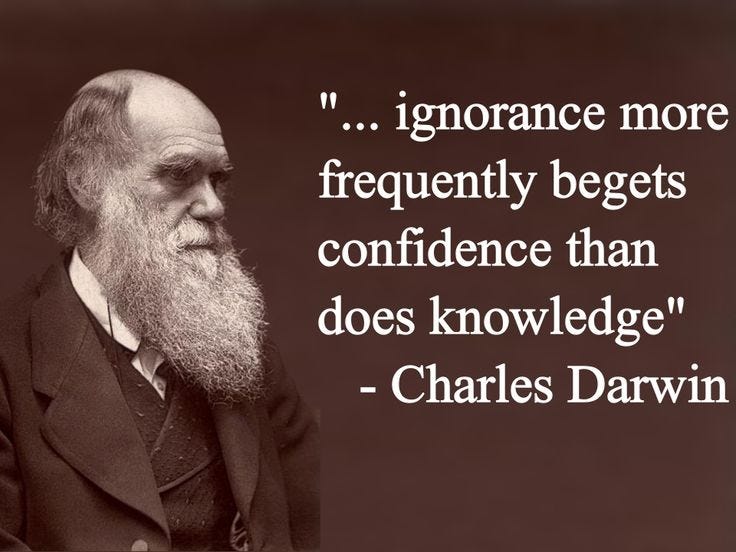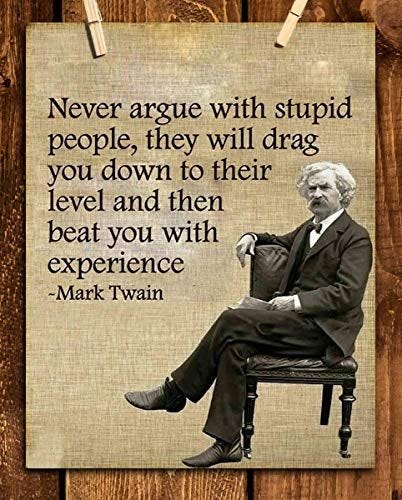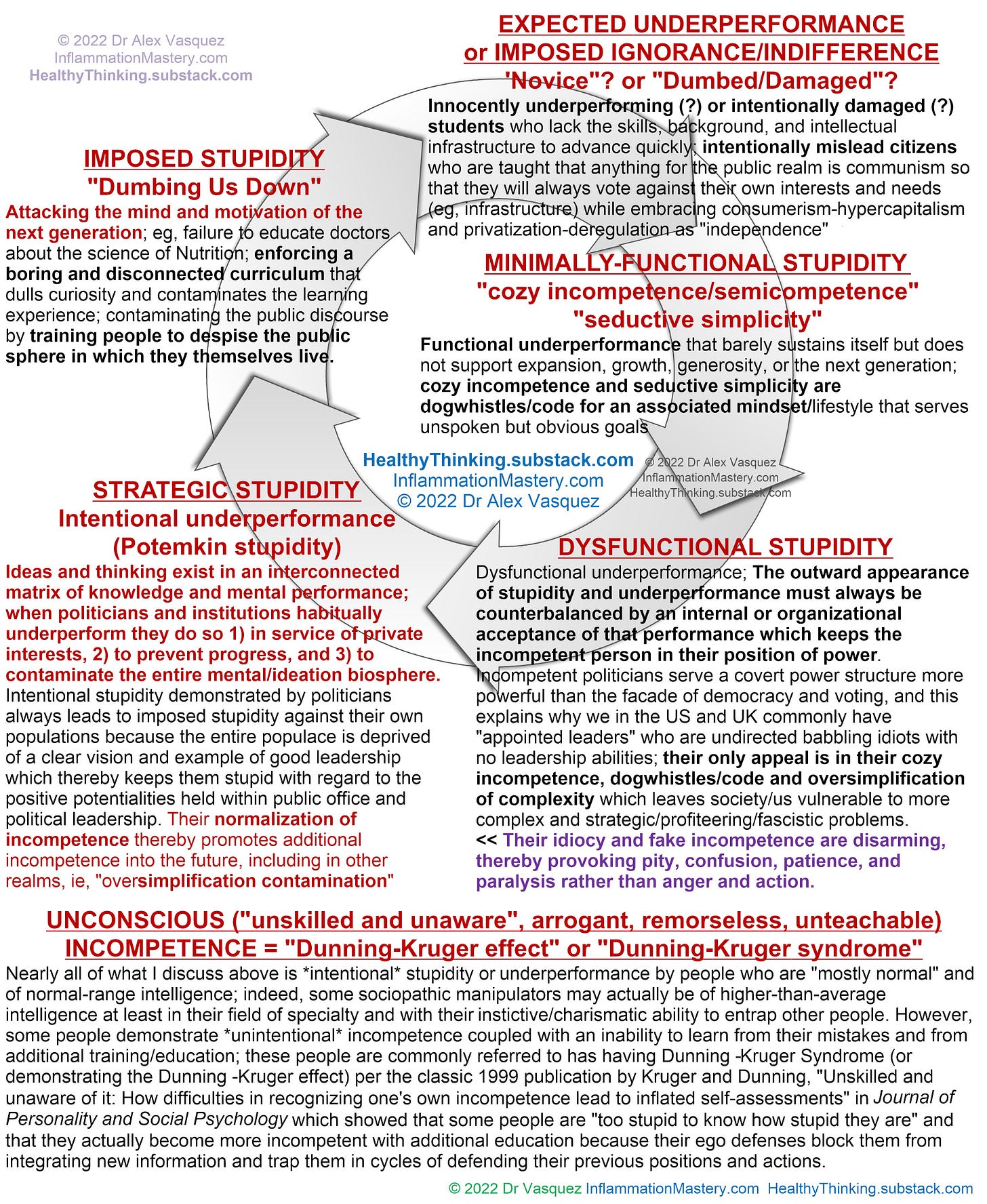Dunning-Kruger effect/syndrome
Some people are "too stupid to know how stupid they are", and they actually become more incompetent and self-defending with additional education/information
I am sure that most adults have heard of this phrase “Dunning-Kruger” so here I will provide more detail and the original publication.
PDF of Kruger and Dunning, "Unskilled and unaware of it: How difficulties in recognizing one's own incompetence lead to inflated self-assessments" in Journal of Personality and Social Psychology 1999 is provided below, at the end of this page
Childhood friendships don’t necessarily translate into Adult Friendships—nor should we expect them to.
I had a recent negative experience with a long-term friend that didn’t actually surprise me because I have observed how he has changed over the past few years. My friend had gone from being somewhat of a lifelong drifter (albeit a pleasant drifter) to someone who now thinks of himself as being highly successful, accomplished, and elite because he married someone with big money. His behavior finally became unacceptable even if it was perfectly predictable given his trajectory, so I ended the friendship, blocked his phone number, and called it done: thanks for the memories.
My friend had become Dunning-Kruger on many levels, because he thought that marrying someone who had made money meant that he was capable of same (benign error) and that this catapulted him into the social-intellectual-financial elite of humanity (bigger error) and that he could now mistreat people at his whim (dangerous error). Like I’ve said before among other lessons learned, “In societies that praise money, rich people are too-commonly assumed to be good, pure, and truthful and somehow ‘better than other people.’”
I learned that childhood friendships don’t necessarily translate into adult friendships—nor should we expect them to. For childhood friendships, we are mostly looking for fun/companionship and acceptance, while adult relationships are more complex because our needs, wants, expectations, and standards have changed at 50 years-of-age from what they were at 15 years-of-age.
Of course, I reflected on the events for several days, and tried to understand how what happened fit into my understanding of fallacies, mistakes, etc. His behavior actually did not fit either fallacy (see recent video) nor stupidity per se (see previous model, now updated below), so that I had to review the Dunning-Kruger syndrome/effect and also update the diagram provided toward the end of this page.
Dunning-Kruger = arrogance + incompetence
Some people demonstrate *unintentional* incompetence coupled with an inability to learn from their mistakes and from additional training/education; these people are commonly referred to has having Dunning-Kruger Syndrome (or demonstrating the Dunning-Kruger effect) per the classic 1999 publication by Kruger and Dunning, "Unskilled and unaware of it: How difficulties in recognizing one's own incompetence lead to inflated self-assessments" in Journal of Personality and Social Psychology which showed that:
some people are "too stupid to know how stupid they are"
they actually become more incompetent with additional training/education because their ego defenses block them from integrating new information and trap them in cycles of defending their previous positions and actions
In summary: Dunning-Kruger = arrogance + incompetence/ignorance, especially incompetence/ignorance that gets worse with time, which is the opposite of what occurs with normal-healthy people, who learn more skills and information with time and who generally improve their abilities to self-reflect and self-correct with time
LEVEL ONE—FRUSTRATING: In normal circumstances with someone who is Dunning-Kruger but not psychopathic/antisocial/violent, their Dunning-Kruger is something of a frustrating or almost-laughable inconvenience—we don’t have to accept their behavior but at least the danger level is low. The combination of arrogance + inability to reflect/integrate = highly frustrating for everyone other than the chief actor.
“Dunning–Kruger effect is a cognitive bias whereby people with low ability, expertise, or experience regarding a certain type of a task or area of knowledge tend to overestimate their ability or knowledge.” Wikipedia
LEVEL TWO—MANIPULATIVE: But what if that same person with Dunning-Kruger syndrome is also mildly psychopathic? They will probably be manipulative and socially/emotionally harmful to others. If you see this combination, then the best advice is to leave, move, get away.
LEVEL THREE—DANGEROUS: What if they are more psychopathic? Then they are a life-and-death physical threat to others. The combination of arrogance + inability to reflect/integrate + willingness to be violent/ruthless = recipe for disaster. In fact, if you look at the basic profile of most serial killers, their psychographic pattern is exactly entitlement + un(self)reflective + ruthless. If you want to see a real-world example of this combination, you can see several news items and video documentaries on Daniel Wozniak, the charismatic actor who became a double killer simply in order to pay for a short vacation with his wife.
Perhaps a sequence of severity is as follows:
Ignorance can be innocent.
Incompetence is problematic, because by definition it means that someone is underperforming for a role that they could and should be prepared for; the team/organization/nation/society is being held back, retarded, or harmed because of someone’s underperformance.
Stupidity among adults is commonly self-serving in some way (which might be relatively/temporarily benign) or it may be strategic, in which case it is intentional and therefore designed to harm other people.
Dunning-Kruger is reckless and non(self)correcting, so it is either going to be a small problem or a big problem, depending on the situation and the person’s tendency for ruthlessness.









